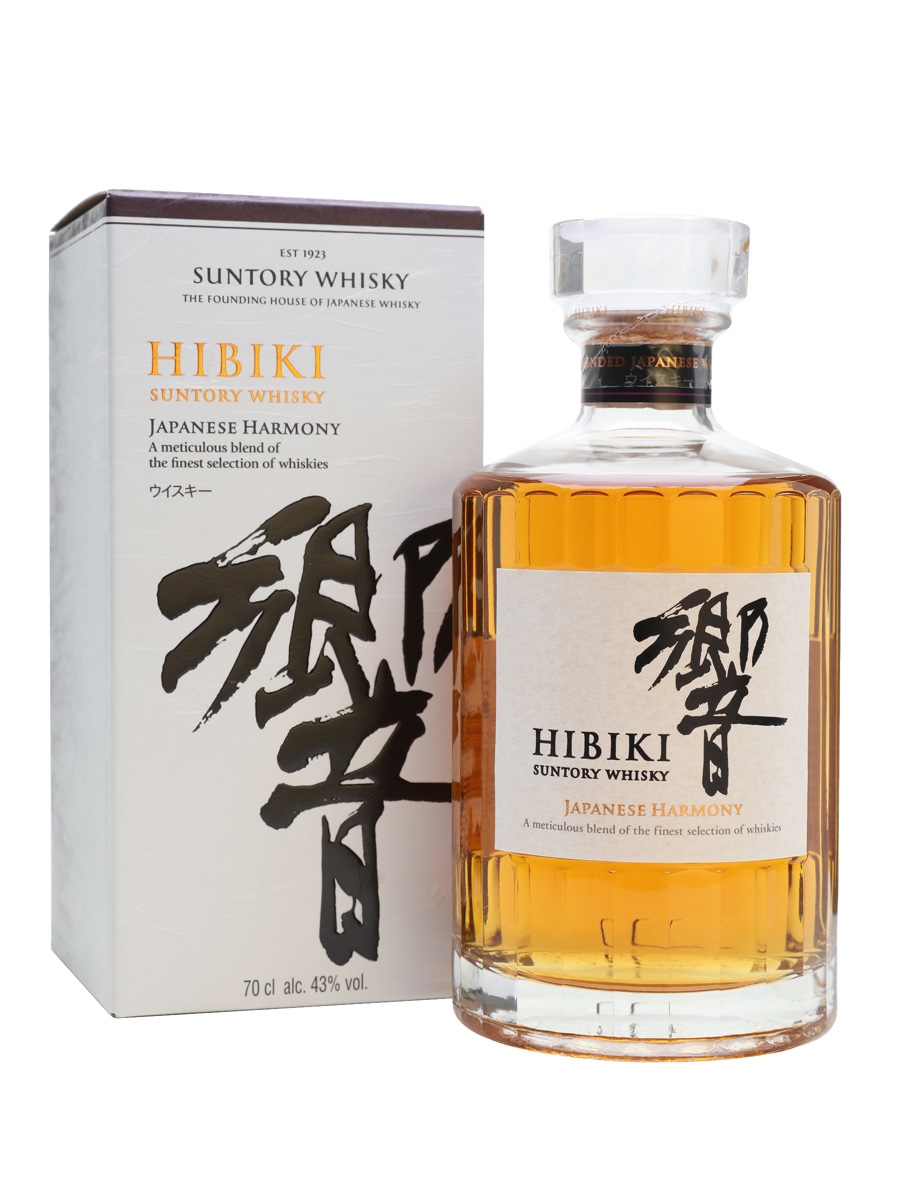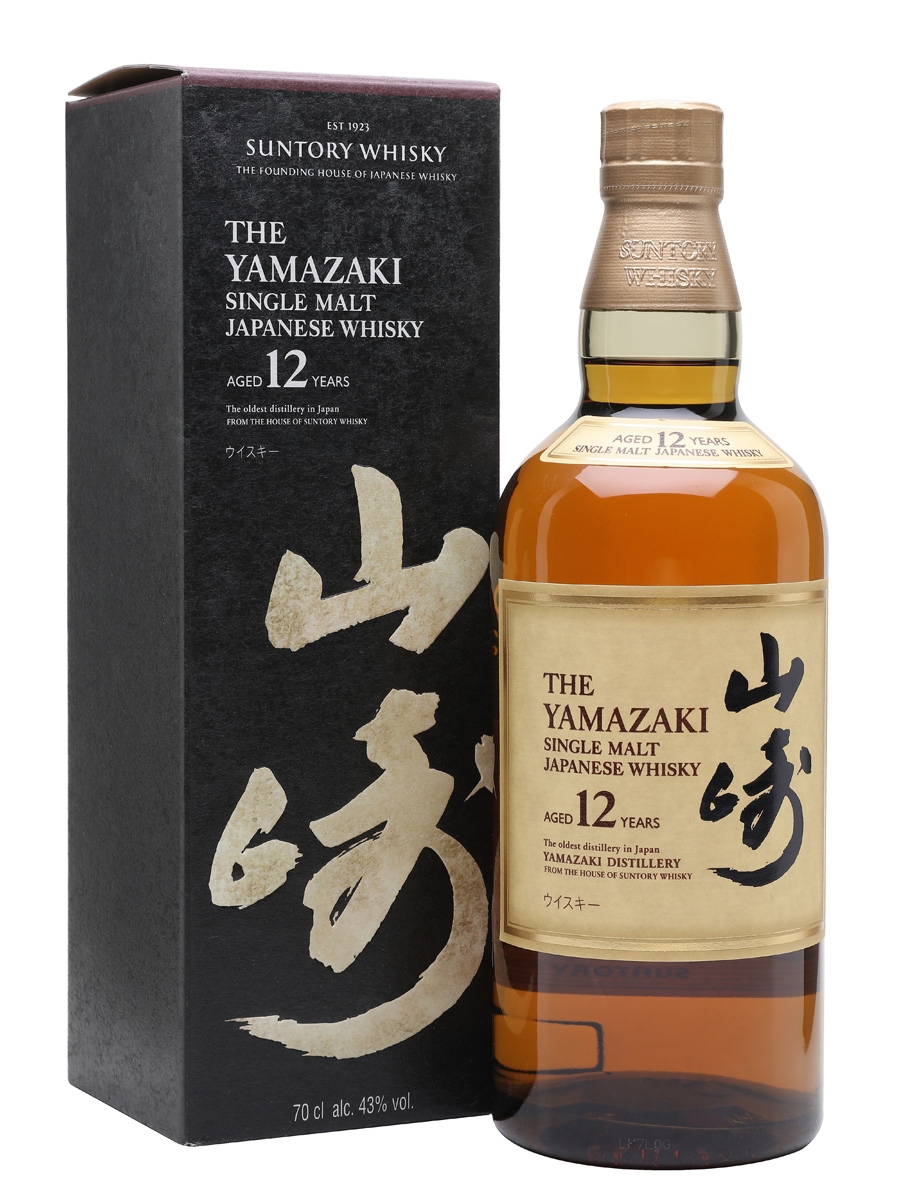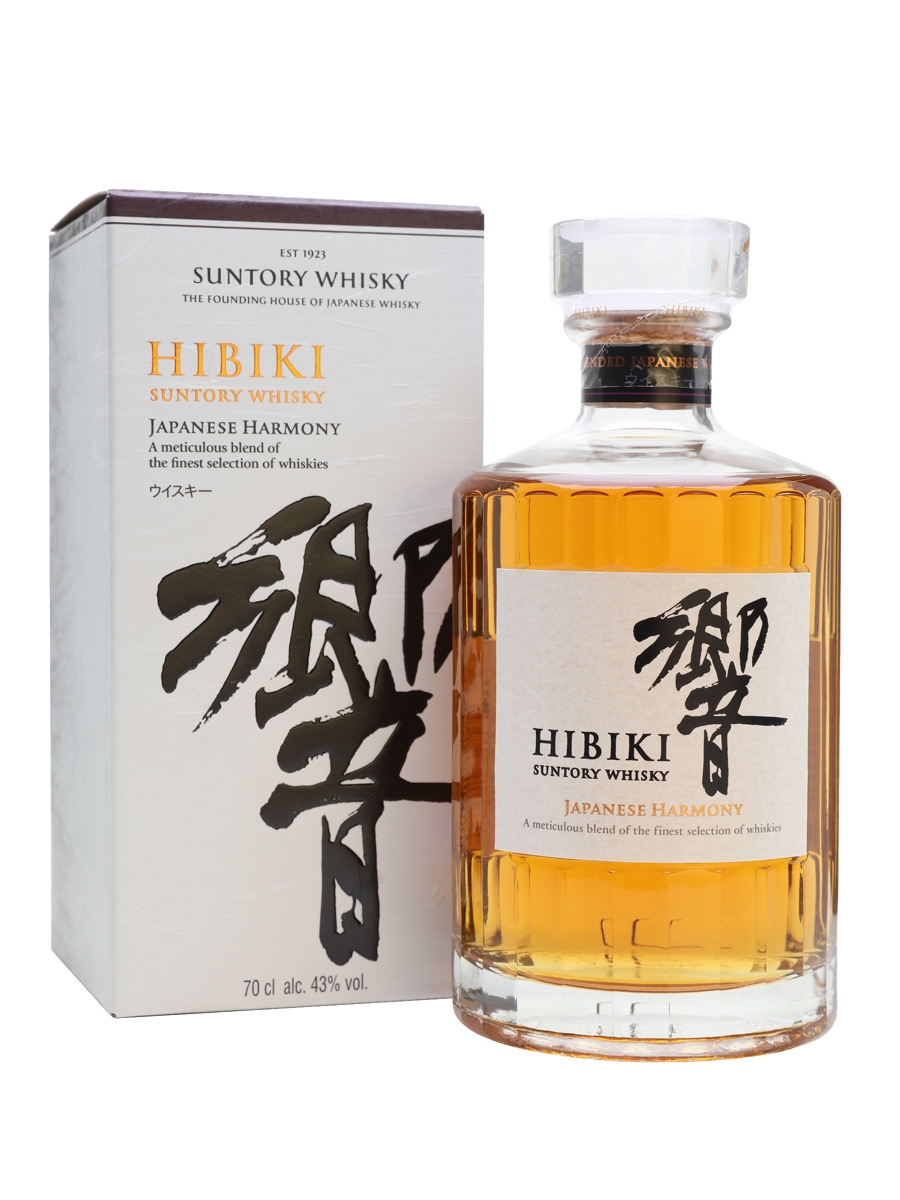[su_note note_color=”#ffe3e6″]This post contains affiliate links. Affiliate disclosure: As an Amazon Associate, we may earn commissions from qualifying purchases from Amazon.com and other Amazon websites.[/su_note]
Hibiki Japanese Harmony is a blend of Japanese malt and grain whiskies from Yamazaki, Hakushu and Chita. Presented in the brand’s trademark 24-faceted bottle representing the Japanese seasons, this is light, approachable and moreish with enticing notes of orange peel and white chocolate.
Ladle of Contents
Hibiki Harmony Review:
Colour: Light gold.
Nose: Aromatically sweet with citrus, an artisanal whipped cream and powdered sugar on the nose.
Taste: Smooth, citrusy palate with soft and light hint of malt; with natural orange zest and light touches of orange peel. The gingerbread notes are there. Almost like a natural gingerbread.A well put together, soft mellow and light blend from Suntory, with unique notes of orange zest and gingerbread. It is no doubt that this one is a crowd pleaser. A smooth uncomplicated and light dram to enjoy.
Would I buy more? Hell ye!
Harmony is one of those malts that you can always return to. The gingerbread and orange notes are apparent and enduring, providing a little solidity and brightness in an otherwise quite lightweight tasting blend.
I suppose the findings on this one suggests the brand’s distinct point of view of what their single malt should taste like. Very true.Innnovative and imaginative. And, yes, all of that is true. And, HibikiHarmony has done little to disappoint in taste. It is light, soft and sweet, like a single malt should be.
It is not cloying, or sticky, or artificial in any way. It is all about subtlety. Subtlety is Hibiki’s strong suit.
Consistency is a bit problematic, and I would suggest that Suntory’s next single malt blend should really be a grain whisky. I’d like to see Hibiki experiment further with the grain base, and try rice or corn other than that of barley. After all, brand Hibiki is derived from ‘harumiko’ and the Japanese word for barley is ‘harima’.
Despite the grain and Japanese malt issues surrounding this blend, I would still recommend this one to those that enjoy a lighter, more subtle taste, such as myself. Or those that like a whisky that is seasonal. This is perfect for winter-time.
Hibiki Harmony Review:
It seems to be reflective of the Japanese himself; gentle and soft. It is certainly not for those that like a heavy aromas or overly intense tastes.
To this very modest and simple notion, I submit. The botanicals that Suntory has used for this blend are very gentle. Hibiki Harmony is, in my opinion, at its strongest and mellowest when paired with soft foods or dishes. The softness and sweetness of it make it stand out.
Personally, I would really like for Suntory to expand upon the Hibiki brand to include the grain, the barley. I would really like to see something new and innovative.
So, T he next time you find yourself at The House That Suntory built, stop by and allow yourself to be enticed by the subtlety of Hibiki Harmony. Or you could sample it and let that be your own perfumed pleasure.
However, no matter how you choose to sample it, Hibiki Harmony seems to have found its ideal match. And, for this, I thank Suntory for creating it and bringing it to the USA.
Unless otherwise specified, I own all the whiskies that I have liked and reviewed.
Recommendation: Buy a bottle, or two. Assesments are never perfect. Purchases and opinions do not always match.
hater of whiskey, ochre oxidation, and sour grapes.
Hibiki Harmony Review:
The best thing about Hibiki Harmony is that it is a blend of Japanese malts and grain. That is what I am talking about when I say smooth and soft. If you are familiar with Japanese malt, then you may know how good it can be.
And, not to argue with perfection, but I think Suntory really pulled out of their hats with this blend.
Suntory makes a good Japanese whisky. They are one of the few that can, and they do. They are the only ones that can do the Japanese malts because they really are different than a Scotch Malt or American Malt. Scotch Malts and American Malts are raw materials.





